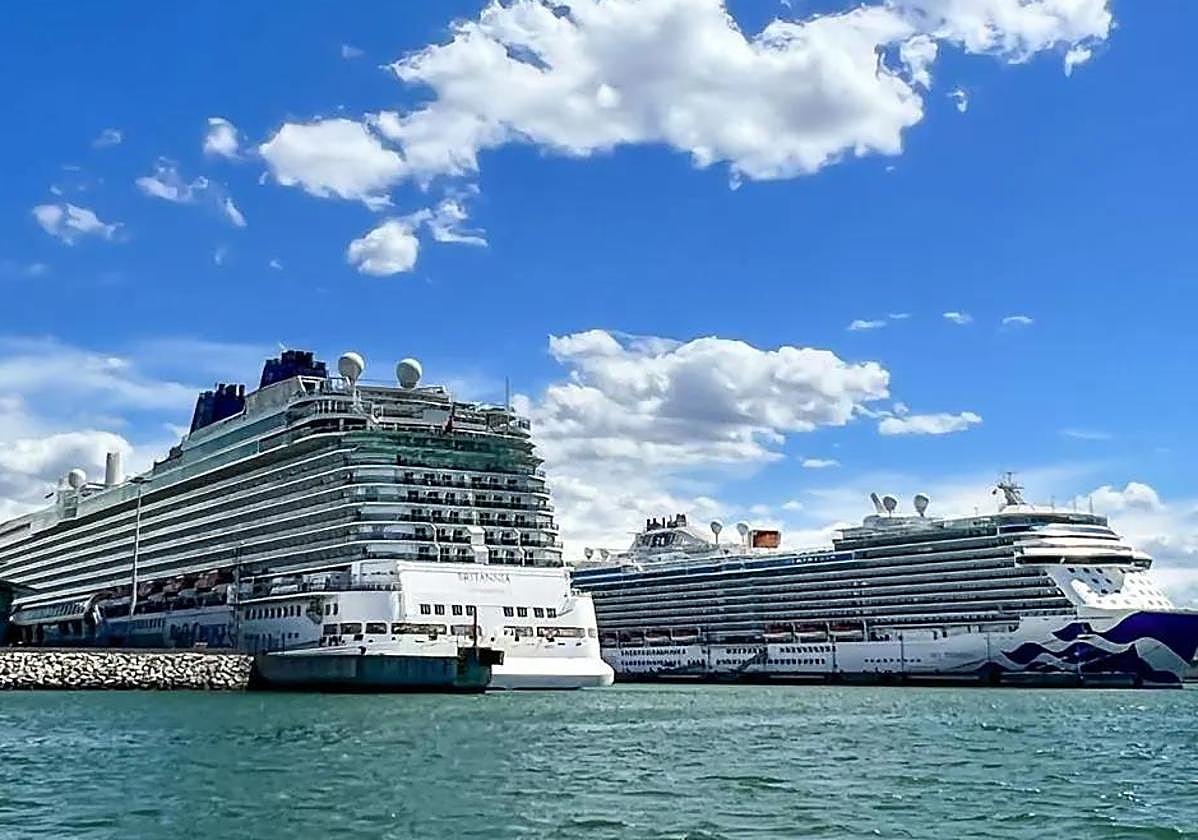Cruise lines consider swapping their itineraries to other countries following anti-tourism protests in Spain
Tourism-phobia is also happening in other Mediterranean countries, with some cruise companies already looking at other 'friendlier' destinations
Cruise lines are starting to change their routes towards more "tourist-friendly" destinations following mass anti-tourism protests throughout Spain.
The cruise industry will increase its capacity by 10% in the next five years, according to forecasts by the Cruise Lines International Association (CLIA), which rules out the anti-tourism movement in Spain affecting its turnover, but will affect the destinations to which they travel. "Tourism-phobia is not only a problem in Spain, but also in France and other Mediterranean countries, but visitors are increasingly sensitive and the scenes that have been seen in places like Barcelona have an impact on the reputation of the destination," said Marie Caroline Laurent, European director of CLIA, on a visit to Madrid on Tuesday 16 July.
Alfredo Serrano, CLIA's director in Spain, pointed out there are countries such as Saudi Arabia and others in the surrounding area that are making "millionaire investments" in boosting their tourism sector and are welcoming tourists with open arms. "As dialogue with the city council of Barcelona, for example, is complicated, it will result in cancellations and dissatisfaction among tourists," they said at a press conference, where they called on the authorities to stop "demonising" tourism and to start regulating tourism better in a bid to understand the protestors' demands.
Financial contribution
5.67 million euros
was the cruise industry's turnover in Spain in 2022, which is 6% less than in 2019
The idea is not only to change countries, but also to change the cities where tourists arrive in Spain. The infrastructure is ready, "all that is needed is for those responsible for promoting tourism in the country to offer foreigners the opportunity to visit other attractive cities" such as La Coruña, Ferrol, Almería, Alicante, Cartagena and Cádiz, where more ships are docking.
A total of 60% of cruise passengers repeat the experience, so it is "essential" to seek new destinations to which to take the thousands of tourists who board a ship every month. Forecasts suggest tourism will account for 17% of Spain's Gross Domestic Product (GDP) in ten years' time, so this part of the economy needs to be managed "at a much higher level", Serrano said. And the cruise industry will be an important part of this, as some 50 ships will be added in the next five years to the 300 that currently sail the seas.
Making the sector more environmentally friendly
Spain is the fourth largest outbound market in Europe and the ninth largest in the world for cruise passengers. In 2023, a total of 586,800 Spaniards travelled on cruises, with the main destinations the Mediterranean and northern Europe.
The demand has sparked ports to become more environmentally friendly. Serrano said that when a ship docks, it needs to keep the engine running to supply energy. However, if docks are electrified (an EU obligation for major ports by 2030) ships could be connected to the grid and switch off engines. Cruise companies are already investing in this and currently 40% of the fleet has this capability, a percentage that will reach 80% by 2028.
However, Serrano warned that only 16 ports in Europe currently have this capacity, and in the Mediterranean, only Malta. However, in Barcelona, 100 million euros are being invested to set it up, with the ports of Bilbao and Cadiz also studying the possibility. "The technology exists and many ships already have it, now it is the turn of the ports," he said.

